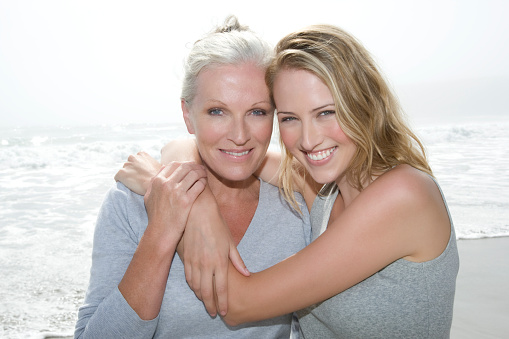We’d all love to look younger longer, but how?
Science now understands what changes in our skin as we age. Our skin cells replace themselves more slowly (at a reduced renewal rate). The blood flow to skin cells slows—reducing both delivery of nutrients to the cells and removal of debris. And production of the main proteins in skin (collagen and elastin) slows down.
Damage to our skin comes from both inside and outside. Ultraviolet radiation from the sun and chemicals attack from the outside. When we eat food that is lacking nutrients or is high in sugar, trans-fats, or other junk, our skin suffers from the inside.
We can learn how to keep our skin healthy from science. Yes, there are effective ways to protect your skin from aging. All you have to do is follow a few easy steps:
- Eat Well and Exercise. The foundation of health for both your body and your skin is a good healthy diet and a regular exercise routine.[i] Eating healthy means a diet low in sugar and processed foods, with plenty of fruits and vegetables and good, lean proteins. Exercise helps to improve blood flow throughout the body and to your skin. An exercise routine doesn’t have to be anything crazy (walking is great); you just need to be consistent.
- Have a Good Skin Care Routine. Start with a good cleanser and follow with a moisturizer—especially before you go to bed. Choose body care products from companies that have a commitment to clean products that are free of questionable chemicals. Spend extra time on delicate skin that may need extra protection, such as around your eyes. Avoid too long and too hot showers. Gently blot dry yourself with a soft towel and moisturize.
- Avoid Questionable Chemicals. While chemicals can make effective body care products, certain chemicals can leave your skin in worse condition (especially over time). Avoid products that contain lauryl sulfates, parabens, formaldehyde, preservatives, and synthetic colors (to name a few).
- Choose Healthy Oils. The omega-3 fatty acids in fish oil can help skin look supple and hair look fuller, plus it helps with inflammation.[ii] Olive oil is another good choice when cooking.[iii]
- Take a Multivitamin. Many letter vitamins (especially the antioxidants) can help reduce the impact of free-radicals on your body.[iv] It simply makes sense to take a multivitamin to help cover any deficiencies in your diet. Take Vitamin D and Vitamin A for extra skin protection.
- Protect Your Skin in the Sun. The sun is both good and bad for your skin—the key is in the dose (you only need a little). Besides questionable chemicals applied directly on your skin (from poor body care products), the sun will do the most damage. Use a broad-spectrum UVA/UVB sunscreen under your foundation (or choose a foundation with an SPF).
- Get a Good Night’s Sleep. Sleep is the unsung hero of healthy skin. A study in the journal Sleep demonstrates that sleep deprivation really shows on your face. People who had only a few hours less sleep had hanging eyelids, redness, swelling, dark circles, more fine lines and wrinkles, and pale skin. They also looked sadder than those who had more sleep.[vi] If you are not sleeping well, think about natural products that can help you get a good night’s sleep.
Don’t forget to drink enough water, because your skin needs it. Pampering also pays off—try to schedule regular massages, pedicures, and other skin treatments. Saunas are another good idea.Defying aging is far from an accident or fluke of nature. It is something you can choose to do for yourself, with a little time and a focus on your health.
For more tips on skincare, Subscribe Now to Naturally.
[i] Primavesi L, Piantanida M, Pravettoni V. Mediterranean Diet and Skin Health. In Bioactive Dietary Factors and Plant Extracts in Dermatology 2013 (pp. 3-14). Humana Press.
[ii] Kim HH, Cho S, Lee S, Kim KH, Cho KH, Eun HC, Chung JH. Photoprotective and anti-skin-aging effects of eicosapentaenoic acid in human skin in vivo. Journal of lipid research. 2006 May 1;47(5):921-30.
[iii] Latreille J, Kesse-Guyot E, Malvy D, Andreeva V, Galan P, Tschachler E, Hercberg S, Guinot C, Ezzedine K. Dietary monounsaturated fatty acids intake and risk of skin photoaging. PloS one. 2012 Sep 6;7(9):e44490.
[iv] Jenkins G. Molecular mechanisms of skin ageing. Mechanisms of ageing and development. 2002 Apr 30;123(7):801-10.
[v] Jenkins G. Molecular mechanisms of skin ageing. Mechanisms of ageing and development. 2002 Apr 30;123(7):801-10.
[vi] Sundelin T, Lekander M, Kecklund G, Van Someren EJ, Olsson A, Axelsson J. Cues of fatigue: effects of sleep deprivation on facial appearance. Sleep. 2013 Sep 1;36(9):1355-60.







